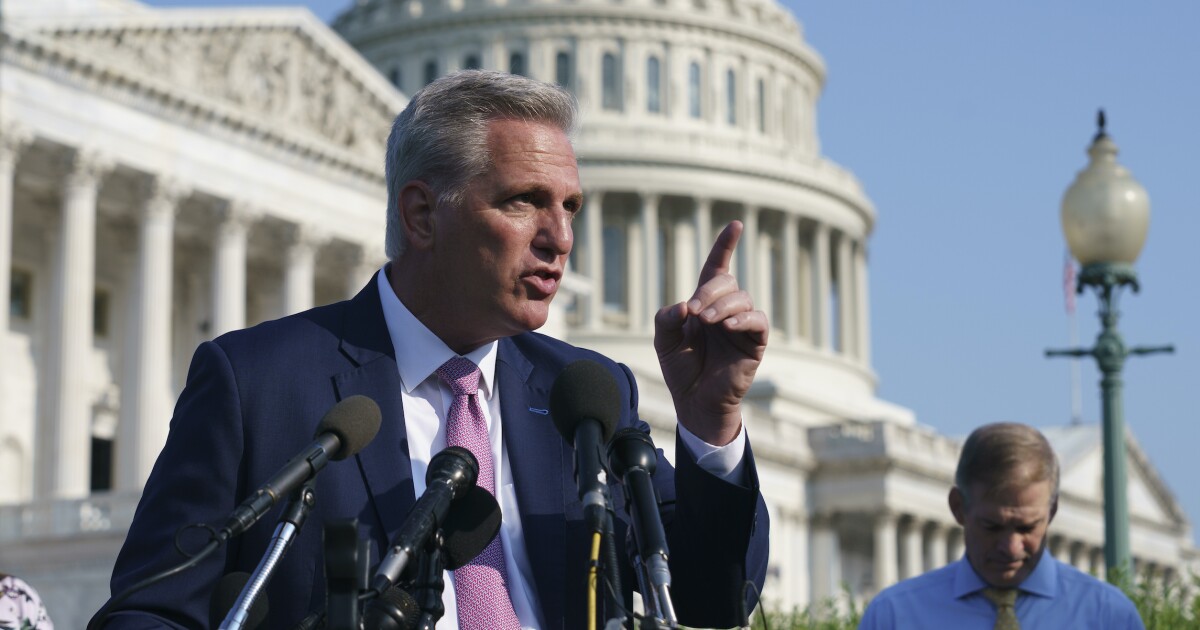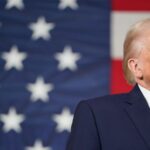

Republicans eyeing control of the House next year have trained their sights on China. Yet efforts to increase oversight of Beijing’s reach have faced resistance from some lawmakers tipped for top leadership posts in a new Republican-led Congress.
The dynamic could challenge House Minority Leader Kevin McCarthy (R-CA), who is expected to launch a select committee on China focusing on national security, trade, and economic issues, likely with subpoena power, if Republicans take the gavel.
McCarthy’s effort “will look at China under a lens,” a source said, shaping the focus of the chairmen of committees of jurisdiction. “They’re going to look at everything that touches China that is important to us from a national security standpoint or as an essential industry.”
Amid this, some moves by Republicans set to hold vital positions next January are drawing scrutiny.
CLIMATE ENVOY JOHN KERRY WEIGHS DEPARTURE AS REPUBLICAN WAVE LOOMS: REPORT
In a letter on behalf of the House Committee on Oversight and Reform last week, Rep. James Comer (R-KY) urged Commerce Secretary Gina Raimondo to reconsider tariffs on aluminum imports, a pillar of former President Donald Trump’s U.S.-China trade war, citing economic pressures driven by inflation.
The tariff issue spilled into public earlier this year when McCarthy and a bipartisan group of lawmakers, including 60 Republicans, urged President Joe Biden’s top trade official to expand tariff exclusions on Chinese goods. Aimed at pressuring China to halt what U.S. officials described as a pattern of unfair trade practices and theft of American intellectual property, the Trump-era tariffs have been repeatedly challenged by business groups lobbying the White House and Congress.
At the time, Peter Navarro, White House director of trade and manufacturing policy during the Trump administration, warned that Republicans proposing to weaken the tariffs were inviting challengers.
While Trump and his former top trade officials are unlikely to be tracking the gavel fights, “they’re paying attention to how McCarthy sets the agenda,” said a former Republican aide familiar with the negotiations.
There have also been grumblings that Comer, the ranking member on the powerful House Oversight Committee, has been difficult to work with on legislative safeguards that would prohibit taxpayer money from going to China.
The federal government spends billions of dollars in taxpayer-funded research to develop advanced technologies, even as inadequate federal oversight has allowed American jobs and innovation to move overseas to China.
Comer’s office sparred with Senate aides last week over the bipartisan Invent Here, Make Here for Homeland Security Act, which would make it more difficult to send cutting-edge products developed with taxpayer-funded research overseas.
A Republican Oversight Committee aide said Comer cleared the Invent Here provision for inclusion in the National Defense Authorization Act on Thursday and rejected the notion that he is unwilling to confront Beijing.
“Any suggestion that ranking member Comer is soft on China is absurd. Simply look at any number of the Oversight Committee’s recent letters,” the aide said. “Dozens of NDAA provisions provided to staff have not been vetted through regular order, and no one has shared any information on the work that has been done to determine the implications of each one, including whether they are narrowly and appropriately focused so they don’t needlessly drive up costs for American businesses and consumers. When we have questions or research that needs to be done, we do our own and ask for supporting information from the bill’s sponsors, in this case from the Senate.”
Over the summer, senators pushed to return protective guardrails to legislation that was set to increase federal spending for research significantly. According to a Health and Human Services Department Office of Inspector General report, more than two-thirds of National Institutes of Health grant recipients failed to meet federal requirements for disclosing foreign financial interests, including at least one instance of taxpayer-funded researchers failing to disclose ties to China’s government-run Thousand Talents Plan.
The amendment was stripped from the final bill by Senate Majority Leader Chuck Schumer (D-NY) after Rep. Frank Lucas (R-OK), the ranking member on the House Science, Space, and Technology Committee, declined to back it.
A source familiar with the situation called it “surprising” that Lucas, who is set to chair the House Science Committee, “would veto strong research security provisions and let American taxpayer-funded innovation to continue to be stolen and used against us by China.”
“It’s completely out of sync with where Republicans are on this issue,” the source said.
Comer, who had backed the provision, rescinded his support amid Lucas’s objections.
China hawks are also eyeing U.S.-China financial ties, with Rep. Patrick McHenry (R-NC), the top Republican on the House Financial Service Committee, likely to face pressure to submit Silicon Valley and Wall Street investors to new scrutiny.
Yet fears that Republicans will pay lip service to tough-on-China policies while balking at enforcement measures are not limited to the House.
Last month, Senate aides looking to include in the NDAA country-of-origin labeling on imported foods and other goods, a provision intended to promote American products, pressed for approval from Sen. Roger Wicker (R-MS). Staff for Wicker, the ranking member of the Senate Committee on Commerce, Science, and Transportation, indicated that in order to move ahead, they would require sign-off from the Chamber of Commerce and National Retail Federation and planned to share the text with them.
The negotiations illustrate a divide among Republicans who favor increased U.S. trade to overseas competitors such as China and are looking to unwind the stringent trade rules enacted under Trump and those searching for ways to protect U.S. jobs and technological advances from outside threats.
CLICK HERE TO READ MORE FROM THE WASHINGTON EXAMINER
It is a dynamic that could pose a challenge for McCarthy in the next Congress if Republicans assume control.
“McCarthy is trying to build his China chops,” a source said. “That his oversight chairman is going to balk at a safeguard provision to ensure our inventions and cutting-edge technologies are made here, that’s a problem for the next speaker.”







